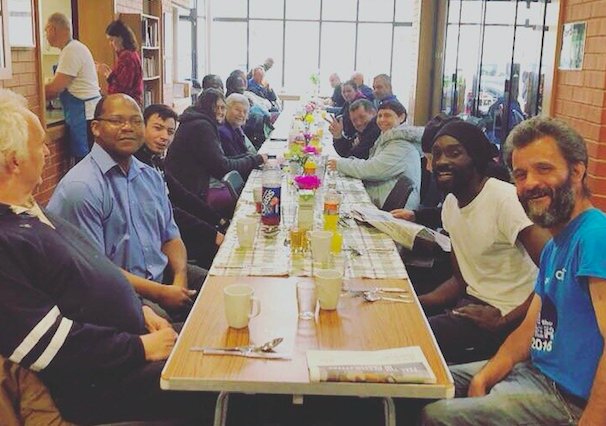Dave Brand, Plan C Brighton
Post Brexit, my lexit friends keep telling me that the result represents ‘huge opportunities for the left’. The ruling class is in crisis and antagonisms are being sharpened. My answer to these people is always, ‘what Left’? Where is it, what social forces does it have that can take advantage of this crisis?
The Right are always in a better position to take advantage of a crisis, and Brexit is no exception. For decades now the Left has been picking fights it can’t win, getting beaten up, and then starting another fight. Without forces, you can’t fight, and if you can’t fight, you can’t win.
What the Left should be doing, then, is building up its social forces that would be able to wage a protracted fight against Capital and the State. A perspective for theorising the creation of these forces is the concept of hegemony; the notion that one can tie a seemingly disparate set of interests to a particular class project through a discourse articulated with our experiences. Hegemony shouldn’t just be understood as a clever language game. Instead, it is a fundamental material thing, rooted in our everyday practices: in our workplaces, homes, pubs, state institutions, sexual relations; hegemony is founded in the dull compulsion of everyday life. It is at the level of the everyday that the neoliberals win consent for their class project. Everyday competition and discipline build consenting neoliberal subjects. Neoliberalism is part of everyday life, neoliberalism is the common sense through which we see the world.
It seems to me what the Left needs to do is build up its own, socialist hegemony. We need to build up our own hegemony rooted in people’s everyday experiences and articulated with a ‘socialist common sense’. What does this mean in practice? To me, it means building up a set of solid material institutions which provide a base from which to wage struggles against Capital and the State and simultaneously form the basis of a new society. An infrastructure that can provide shelter and respite from the vagaries of the market and reproduce individuals as ‘socialists’.
These should include unions and anti-fascist organisations, but also social centres, football clubs, ‘red gyms’, cultural events, and a weatherspoons of the Left; a people’s palace fit for the 21st Century. Places where people can go to act politically but also enjoy themselves, places where people are reproduced as socialists, where the primary logic of the space is not competition and accumulation but solidarity and friendship. For this project to be truly hegemonic, it needs to be expansive and outward looking, always trying to draw people in and never becoming insular and cliquish, as much of the left often does. If basic bonds of solidarity are rebuilt, if communism becomes part of everyday life, we can then start to build up consent and the ability to force through a communist class project.
These aren’t utopian demands, but are embedded in the reality that surrounds us. From football clubs like Clapton, FC Manchester, and Whitehawk to social centres like Common House and The Cowely Club, to national co-op projects like Radical Routes; the basic infrastructure and models of how to build it are already there. We just need to generalise these projects and deepen those that already exist.
A left wing hegemony needs to be rooted in the dull compulsion of everyday life, it needs to start at the level of the mundane, everyday communism. It begins with creating our own way of life outside of and not reliant on Capital or the State.










